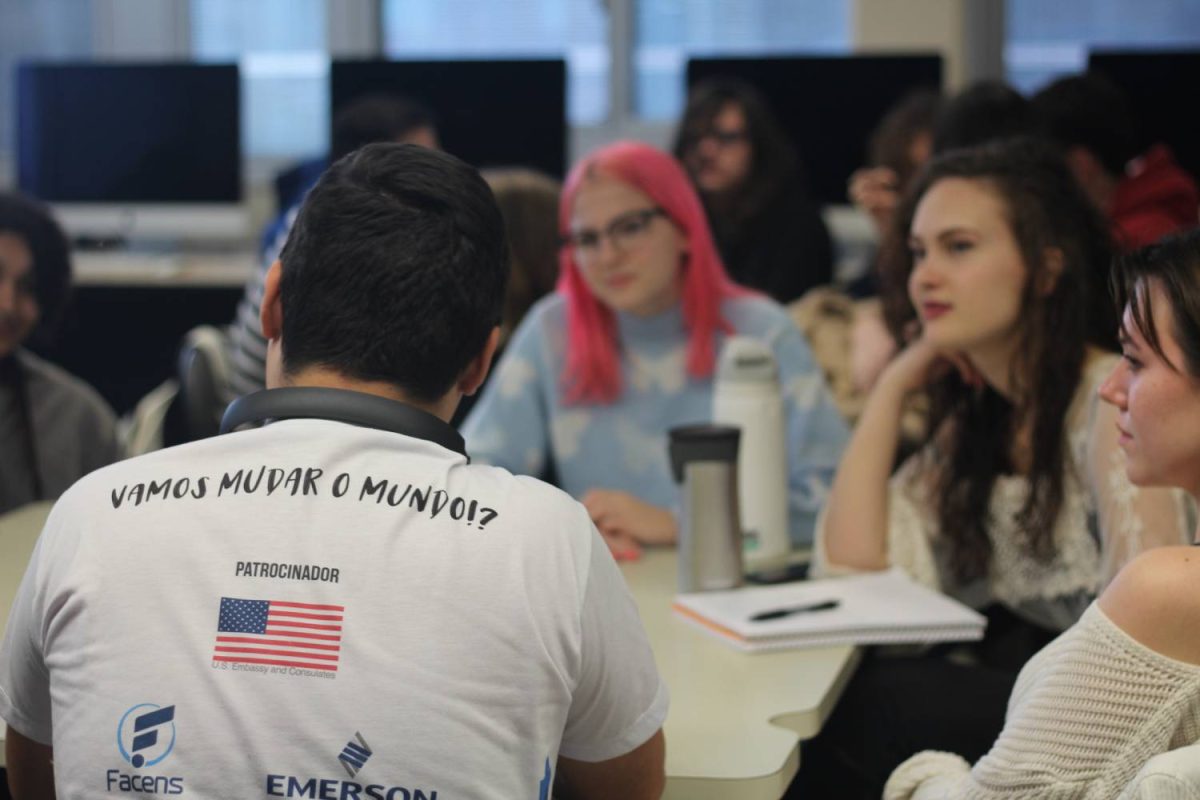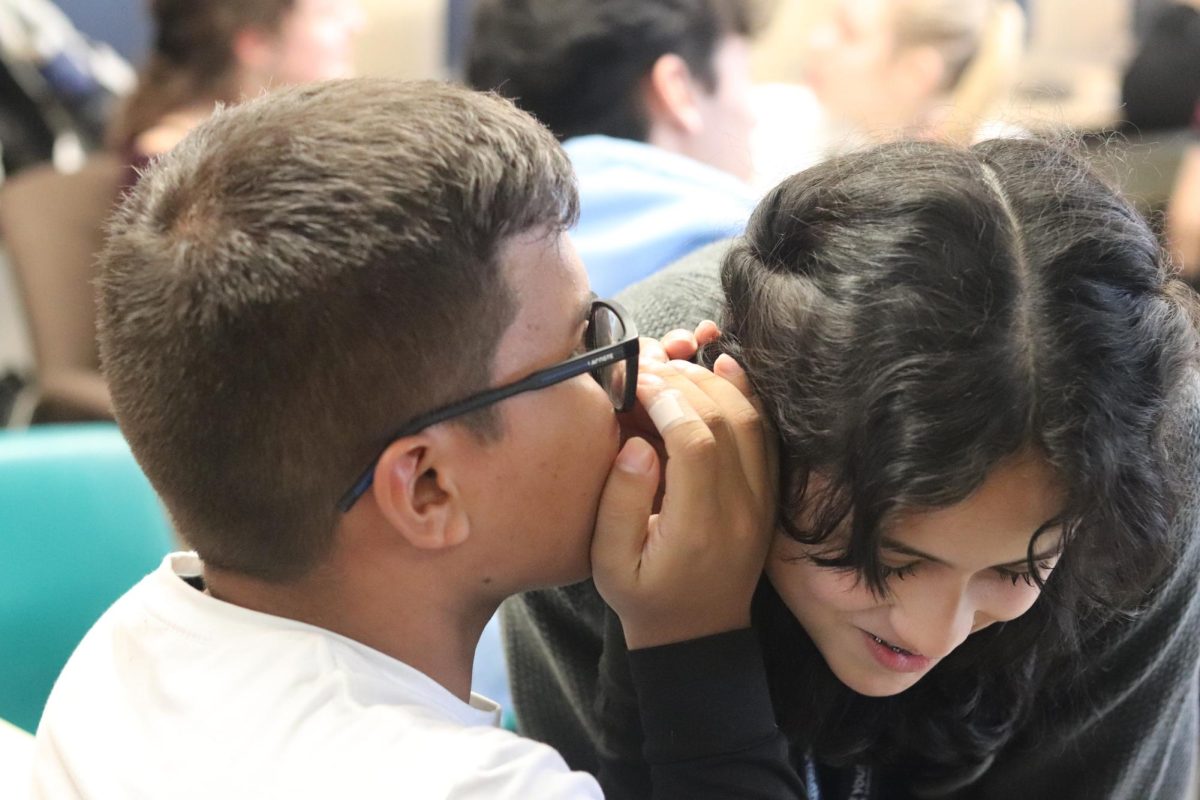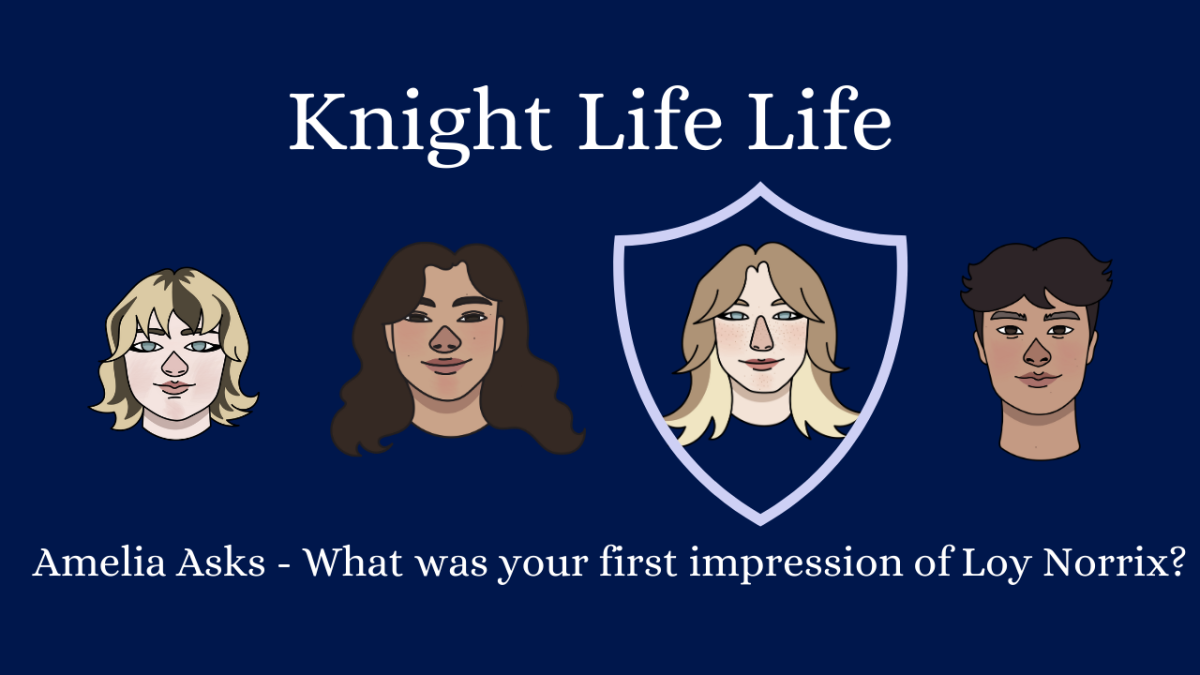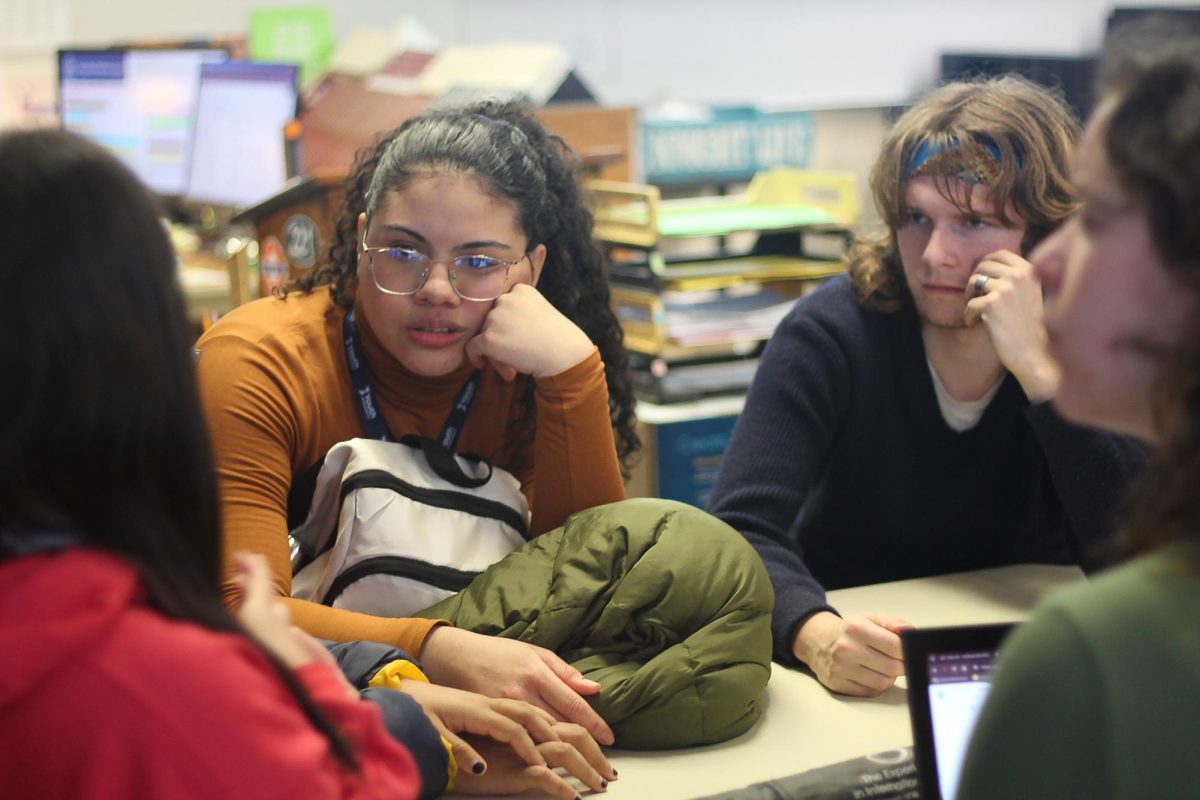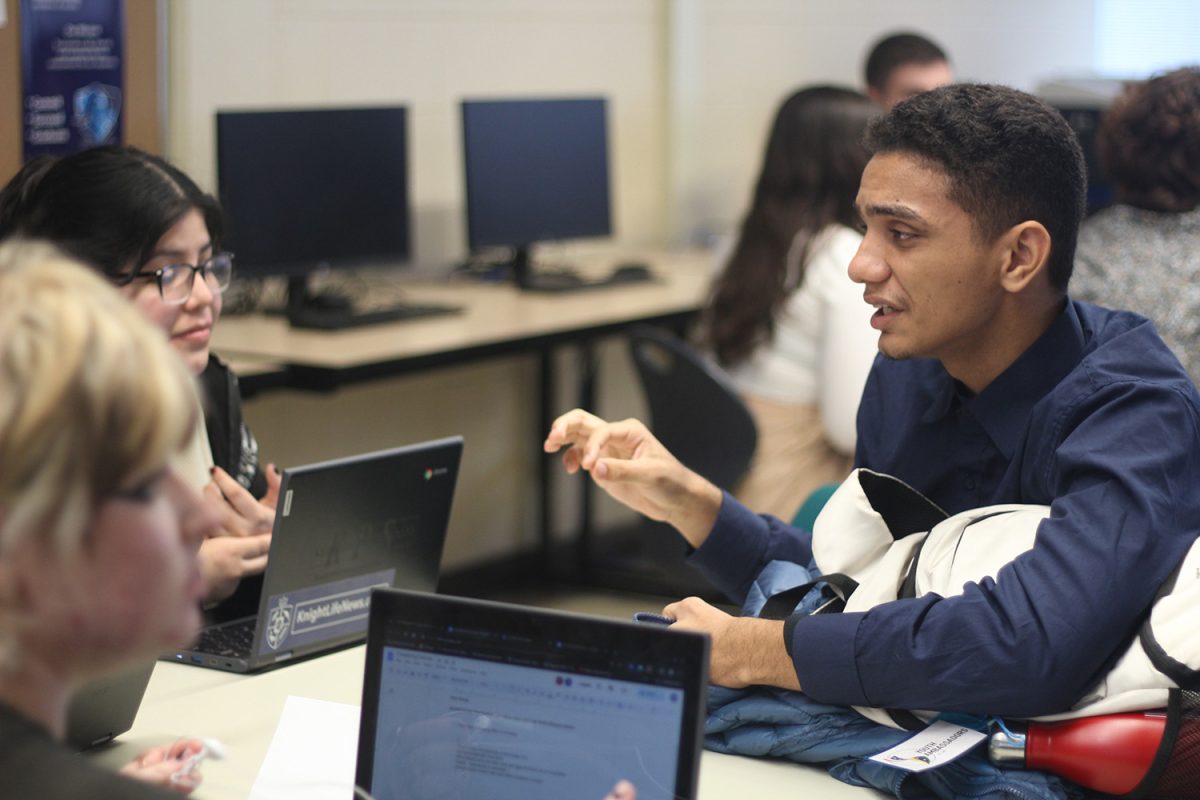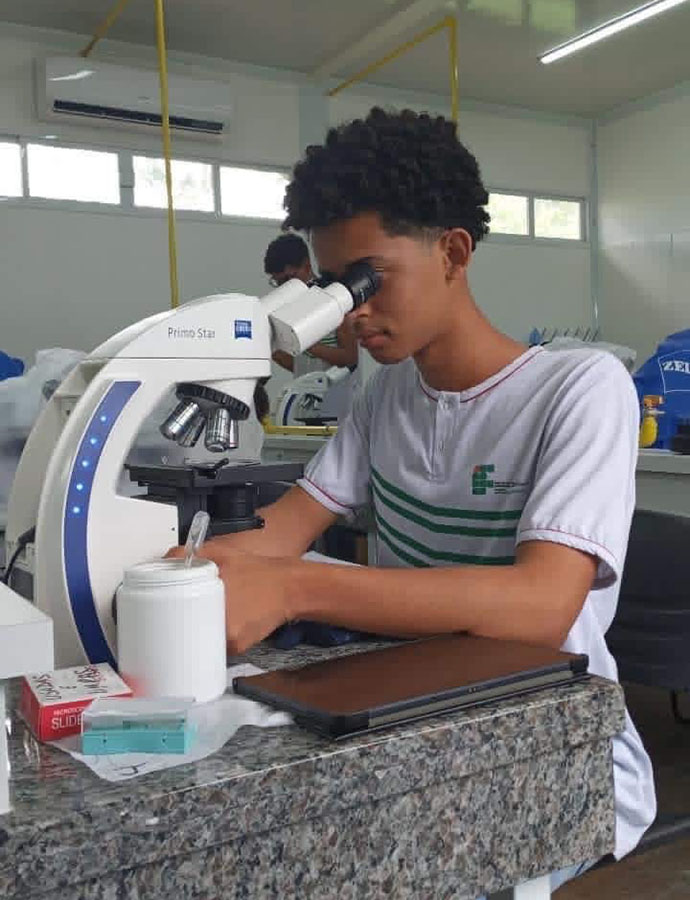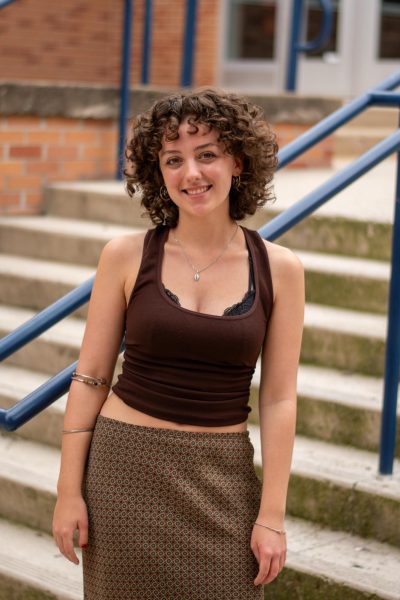 Editor’s Note: This story is part of the Global Ties Kalamazoo series published by Knight Life News. From Monday, Feb. 12, to Friday, Feb. 16, related content can be found on our website, Instagram, and Facebook.
Editor’s Note: This story is part of the Global Ties Kalamazoo series published by Knight Life News. From Monday, Feb. 12, to Friday, Feb. 16, related content can be found on our website, Instagram, and Facebook.
On Jan. 24 and 29, Brazilian Youth Ambassadors visited Loy Norrix with the purpose of interacting with American high schoolers and conversing with Tisha Pankop’s advanced journalism class. During these two days, the groups participated in tours, Q&A sessions, and other conversations in order to learn more about each other’s culture.
Behind the scenes, coordinators at Global Ties Kalamazoo (GTK) and World Learning ensured that the program ran smoothly and guided the Ambassadors throughout their visit.
On both days, program manager Emma Baratta joined the ambassadors on their visit to Norrix. Originally from the Chicago suburbs, Baratta joined GTK shortly after completing her Master’s degree in Hispanic Studies.
“I was really looking for a job where I could work in international relations and connect with the world,” said Baratta.
For her, Kalamazoo was the perfect community for this career.
“What I like about Kalamazoo compared to where I grew up is that there’s really a sense of community here, and so I felt like this job was kind of the perfect role for me to get to be a part of a local community where we’re having a local impact, but also getting to connect with people from all over the world about all different topics,” Baratta continued. “It was kind of the best of both worlds for me.”
No matter where the visitors are from, Baratta coordinates their trips and supports the international visitors along the way. During their visits, Baratta ensures that their activities follow the theme established for the cohort — this group’s was environmentalism and entrepreneurship — and that they use the experience and knowledge they’ve gained from their time abroad to build a community project when they return home.
On the second day of the Youth Ambassadors’ visit, Vanessa Wyns, a group leader for World Learning, joined Baratta in overseeing the interactions between the Brazilian Youth Ambassadors and the journalism students.
Originally from Fort Collins, Colorado, Wyns joined World Learning after she had lived and worked in Spain for years. Unlike Baratta, who works with groups who travel to the US, Wyns began working with American Youth Ambassadors who traveled abroad. During her time with World Learning, she led students both to Spain and Ecuador.
Despite the differences in their roles, Baratta and Wyns both emphasize the importance of intercultural exchange programs like GTK and World Learning.
“With the youth here, this is a once in a lifetime experience for them,” said Baratta, “and the other piece is that when they come here, the goal isn’t just to sit and learn from Americans, but that everyone exchanges ideas.”
As Baratta explained, it’s important that programs like this aren’t a learning experience for visitors, but also for residents. Just as visitors learn about the culture of the place they visit, residents must also learn from the visitors.
These learning experiences, however, can often lead to disagreements between the groups involved. For Wyns, these disagreements don’t necessarily have to be resolved in order for participants to have an effective understanding of one another.
“That’s okay if you don’t agree, but beyond that, to find a place of respect where you can still accept people for behaving and thinking and acting differently than you, is the most important thing,” said Wyns.
These experiences, however, aren’t possible just by traveling to another country for a week or two. Instead, visitors need safe spaces to immerse themselves in new cultures instead of simply observing them from afar.
“Programs like this are really vital because we build times to have conversations about it, to reflect on culture shock, to reflect on personal and shared identities and differences between culture,” said Wyns. “All of that’s really important to be exposed to and then talk about because then we know how to process these things with respect as opposed to ending up super divisive.”
For all nations, Baratta and Wyns agree that it’s essential for people to engage in intercultural conversations and open their minds to new ideas.
“One of the most important things is exposure to other cultures and other ways of thinking and living,” said Wyns. “Being able to process that and incorporate some of that into your own thoughts and lifestyles, while also retaining your own identity and culture, is a vital skill for everybody in the world we live in — to be able to accept, understand and value each other’s differences.”


